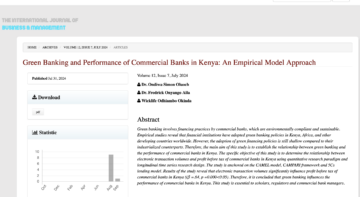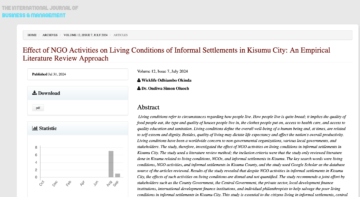This study adds to the body of evidence regarding malaria prevention in rural community settings and promotes community buy-in to interventions. The study showed that the community-led HI resonated positively amongst the population in the rural area of Chikwawa in Malawi. Community-led HI implementation improved the community’s knowledge on HI and malaria. Participants perceived that HI had contributed to reducing the burden of malaria in the area. Acceptability of the intervention was reported to be high by participants. However, barriers towards implementation, such as heat and lack of ventilation in the HI house, inaccessibility, and affordability of materials, would make some community members uninterested in the intervention. For the intervention to be sustained, there is a need for intensive IEC on HI, focusing on the importance of HI, people’s roles, and responsibilities. Community engagement would also help to improve the implementation of a smooth intervention.
Authors:Tinashe A. Tizifa , Steven Gowelo, Alinune N. Kabaghe, Robert S. McCann, Tumaini Malenga, Richard M. Nkhata, Asante Kadama, Yankho Chapeta, Willem Takken, Kamija S. Phiri, Michele van Vugt, Henk van den Berg, Lucinda Manda-Taylor
Full Text Link: https://journals.plos.org/globalpublichealth/article?id=10.1371/journal.pgph.0000627
Related Publications





